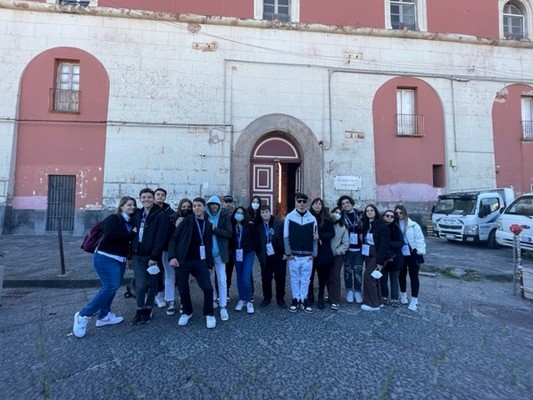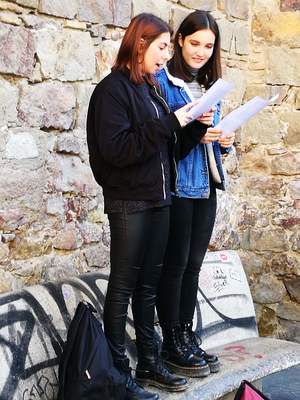
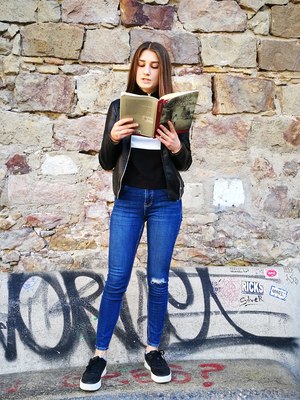
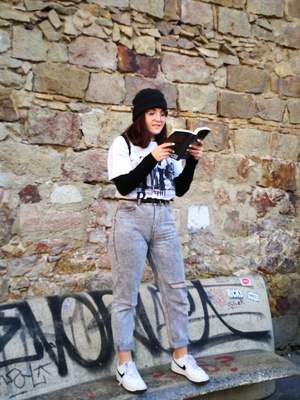
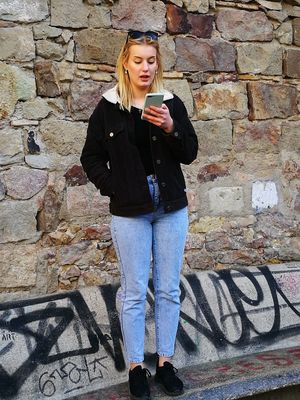
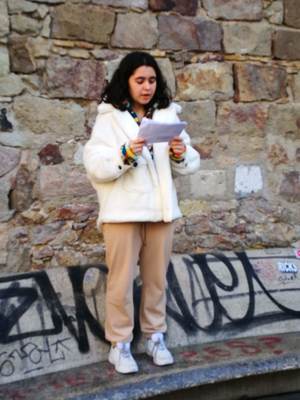
5th of February 2020
This is the activity of our Chapter Erasmus+ and eTwinning project. We are marking this day during the mobility to Spain, but also in each partner school, and we found more interested schools on eTwinning network to join us and share their activities on eTw event. Students read aloud in their schools and public places, fostering reading excellence, building ties within their community, building confidence and public performance competences, but also acquire strategies that can support other students literacy development.
In Spain we read chapters of Carlos Ruiz Zafon's novel Marina in Spanish, Turkish, Swedish, Italian, Greek and Croatian language. The event took place in Barcelona, in front of the Modern art gallery.
Poster Read Aloud Day 2020.pdf
On International Women’s Day in Italy, in the ancient city of Pompei, buried by the eruption of the Vesuvius on 79 A.D., our students READ ALOUD poems and thoughts dedicated to women today, among the ruins of the past, highlighting emancipation and cultural development.
A Tutte Le donne by Alda Merini:
Fragile opulenta Donna, matrice del paradiso
Sei un granello Di colpa
Anche agli occhi Di Dio
Malgrado Le tue Sante guerre
Per l’emancipazione.
Spaccarono la tua bellezza
E rimane uno scheletro d’amore
Che però Friday Ancora vendetta
E soltanto tu riesci
Ancora a piangere
Poi ti volgi e Vedi Ancora I tuoi figli
Poi ti volgi e non sai Ancora dire
E taci meravigliata
E allora diventi grande come la Terra
E innalzi IL tuo canto d’amore.
Our Italian student read a poem that she wrote called “I SEE”
I see you In that industry to work 10 hours a day for a piece of bread,
I see you While you suffer violence from your master and you can't rebel,
I see Your hands, corroded by chemical agents and your body cold
And I see you Quarrel with your husband because the soup is tasteless or you forgot to wash his favourite sweater
I see and I suffer because I can't do anything And the one who can do something doesn't see because he's too busy to standing up to see who's down
On International Women’s Day in Italy, in the ancient city of Pompei, buried by the eruption of the Vesuvius on 79 A.D., our students READ ALOUD poems and thoughts dedicated to women today, among the ruins of the past, highlighting emancipation and cultural development.
A Tutte Le donne by Alda Merini:
Fragile opulenta Donna, matrice del paradiso
Sei un granello Di colpa
Anche agli occhi Di Dio
Malgrado Le tue Sante guerre
Per l’emancipazione.
Spaccarono la tua bellezza
E rimane uno scheletro d’amore
Che però Friday Ancora vendetta
E soltanto tu riesci
Ancora a piangere
Poi ti volgi e Vedi Ancora I tuoi figli
Poi ti volgi e non sai Ancora dire
E taci meravigliata
E allora diventi grande come la Terra
E innalzi IL tuo canto d’amore.
Our Italian student read a poem that she wrote called “I SEE”
I see you In that industry to work 10 hours a day for a piece of bread,
I see you While you suffer violence from your master and you can't rebel,
I see Your hands, corroded by chemical agents and your body cold
And I see you Quarrel with your husband because the soup is tasteless or you forgot to wash his favourite sweater
I see and I suffer because I can't do anything And the one who can do something doesn't see because he's too busy to standing up to see who's down
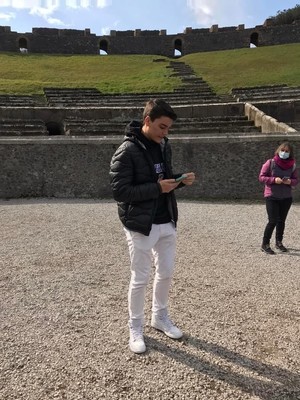
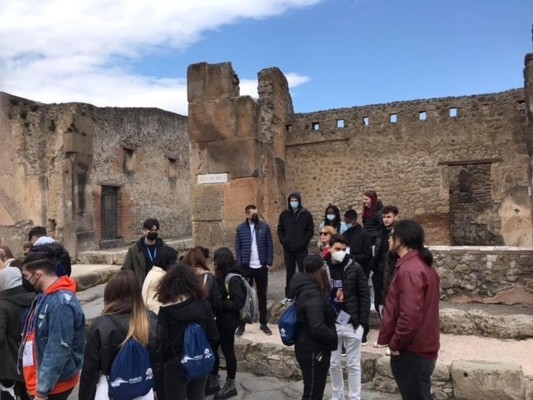
And in Naples the students read aloud parts of the novel "The Bastards of Pizzofalcone" by Maurizio De Giovanni in the same settings of the events.
“Le piacevano tanto quelle palle di vetro, Le boules de neige, come lo diceva bene. Una volta le avevo chiesto, perché le piacevano tanto: e lei mi disse che a guardare la dentro si poteva sognare un futuro che non c’era, e sembrava tutto vero.”
“He had learned, over time, that following the instinct was nothing more than listening to a part of the thought that continued to work below the limit of consciousness. And often, precisely for this reason, it was the best thought, the one that could concentrate without the distractions of the outside world. "
Here is our group in front of the police station in Pizzofalcone Naples.
